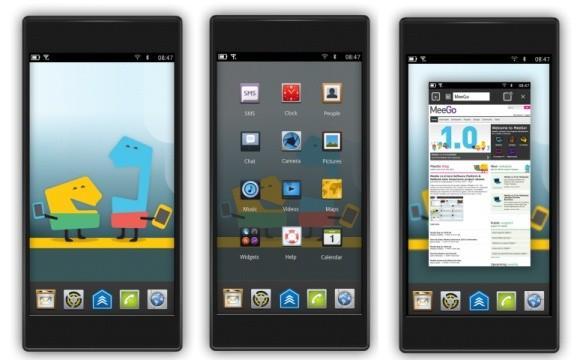HTC is on top of the world. Although Samsung is on their heels for the fan-favorite Android maker title, HTC has clearly been the favorite for some time now. The Taiwanese company has put together the complete package – hardware like the Nexus One, Sensation, EVO, among many very popular others, and the much-loved custom Android software, Sense UI. It's been said many times before that HTC is the reigning king of Android makers, and rightly so.
But quite a lot has changed over the last few months, and much like several other Android OEMs, HTC is in a drawn-out legal tiff with Apple. Only recently did Google step in to defend them with the shared patents from Motorola, which is another point in question itself. Google announced plans to purchase Motorola, not only for their vast mobile patent library, but for the hardware, too. This means that Google will be in direct competition with its partners – partners who claim they "welcome" the deal, but all have recently shown heightened interest in supplementary platforms. Lest we forget that HTC pays $5 to Microsoft for every phone they sell. Sure, HTC has turned some major profits over the last year, but they could be making more if they weren't tied down by legal matters and royalties.
We all saw this coming …
This morning, it was revealed that HTC is in the market to purchase a mobile operating system to call their very own. Which one, you ask? It could be a while before we know as HTC is still unsure; they're not rushing into any deals. But I have a few ideas worth speculating.
Since HP has exited the mobile hardware business, the future of webOS has been unclear. HP has shown interest in licensing the platform, but there have been no potential partners to step forward publicly. There has also been no official word that HTC was in talks to run webOS on their hardware, nor has there been any official talk of HP actually selling webOS to another company, but it is worth considering. If nobody jumps on the webOS bandwagon – which I fear OEMs may be slow to do after its poor market performance and lack of consideration from carriers – then HP might consider selling instead of just sweeping the platform under the carpet and taking even more losses. HP purchased Palm for $1.2 billion. Add the manufacturing costs, the months spent on developing the software and losses associated with the deep discounts on webOS hardware, and we're talking a fairly significant amount of dough lost. Selling the platform could easily make up for at least some of the losses.
If HTC were to buy a mobile platform, webOS is obviously the biggest contender. After the TouchPad fire sale, webOS has plenty of mind share – and a large chunk of the tablet market share. Despite a large portion of TouchPad buyers only wanting the hardware for an Android port, a slew of people that never would have given webOS the time of day have now done so, and a handful of them actually like the software. Amazing, isn't it? Pairing the beautiful webOS software with one of the best mobile hardware manufacturers around would offer the one thing webOS has been lacking from day one: decent hardware. There is, however, one major problem with webOS. HP's webOS Catalog is the gimp leg of the platform; Palm nor HP could ever kindle decent development support by comparison.

But webOS isn't the only mobile platform that may be up for grabs. After a deal with Microsoft, Nokia has announced that they will no longer support MeeGo after the launch of the N9 and will be focusing their efforts on Windows Phone 7. That leaves Intel looking for a new partner to continue efforts with their open source, linux-based operating system. If HTC were to partner with Intel, or even purchase MeeGo from them, they would basically be starting from scratch. The platform itself is progressing, as evidenced by the N9, but there is no market share, little mind share and little application support. That said, the beauty of MeeGo, is that using Alien Dalvik, MeeGo can run Android apps. When you consider the global following that HTC has, bringing a following to an entirely new platform shouldn't be too difficult.
Who knows, maybe HTC could reach out and offer a partnership with Fusion Garage. Grid OS shows some promise, but with a partnership with HTC, it could be turned into something huge. Then again, they would still be tied into Android, and it appears as if HTC is looking for an alternate route altogether ... just in case.
Personally, I see MeeGo as HTC's best option. Sure, webOS has promise and has an existing presence, albeit small, in the market. And it would keep HTC from starting entirely from scratch. But webOS is currently taboo and a rather large gamble – it has already failed not once, but twice. MeeGo, on the other hand, would give HTC the ability to build on an already developing platform and integrate their Sense UI from the core, without totally losing application support.
Tell me, ladies and gents. What platform would you like to see HTC purchase? Would you like to see something like MeeGo reworked and rebranded as Sense OS?
Image via All About MeeGo